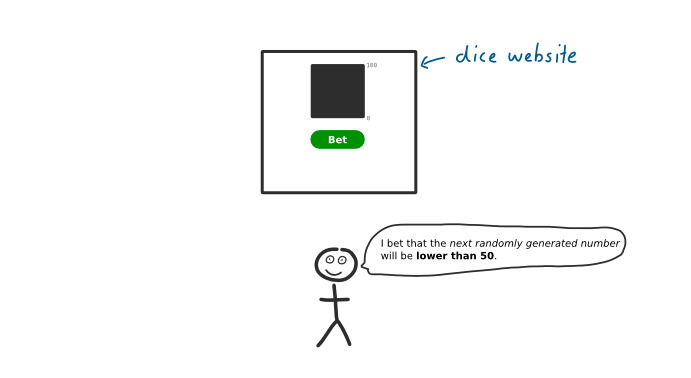Best Electronics Insights
Your go-to source for the latest in electronics news and reviews.
Is Your Loot Really Fair? The Hidden Truth About Provably Fair Systems
Discover the shocking truth behind provably fair systems and whether your loot is truly as fair as it seems. Click to unveil the secrets!
Understanding Provably Fair Systems: How They Ensure Fairness in Gaming
Provably fair systems represent a revolutionary approach to ensuring transparency and fairness in gaming environments, particularly in the world of online casinos and blockchain-based platforms. These systems leverage cryptographic techniques to provide both players and operators the ability to verify that game outcomes are not manipulated or rigged. By utilizing public algorithms, players can confirm the integrity of each result, fostering trust in the gaming experience. Not only does this enhance player confidence, but it also sets a new standard in the industry for fairness and accountability.
To better understand how provably fair systems work, it's essential to recognize their core components:
- Hash Functions: These create unique, irreversible outputs based on input data, ensuring that outcomes cannot be altered retroactively.
- Cryptographic Seeds: Both the provider and player input seeds that contribute to game randomness, enabling mutual verification.
- Verification Process: Players can audit the generated hashes at any point, ensuring that the game results correspond to the pre-determined fair outcomes.

Counter-Strike is a popular tactical first-person shooter that has captivated gamers around the world with its competitive gameplay and strategic depth. Players can choose between teams of terrorists and counter-terrorists in various game modes. For those looking to enhance their experience, using a daddyskins promo code can provide additional perks and features. The game requires teamwork, quick reflexes, and effective communication to achieve victory.
The Mechanics Behind Provably Fair: What You Need to Know
Provably fair gaming is a revolutionary concept that ensures transparency and fairness in online gambling. This mechanism is designed to eliminate any doubt players may have regarding the fairness of a game. At its core, the process relies on cryptographic algorithms that guarantee the integrity of each game round. Players can verify the randomness of the results by checking the seed values before and after gameplay. This system typically involves a random number generator (RNG) that produces unpredictable outcomes, ensuring that every spin or deal is entirely fair.
To grasp the full extent of how provably fair systems operate, it's essential to understand the role of hash functions. When a game is initiated, the casino generates a unique hash that represents the outcome in a tamper-proof way. This hash can be shared with players, who can then verify it after the game concludes. If the player wishes to further ensure fairness, they can use the provided seed to recreate the results independently. This transparency fosters trust and encourages players to engage confidently, knowing that the house doesn't manipulate results in their favor.
Is Your Loot Really Fair? Debunking Myths About Provably Fair Systems
In the world of online gaming and casinos, the term provably fair has gained significant traction as players seek transparency in their gaming experiences. However, many assumptions surround the nature of these systems. One common myth is that all provably fair platforms guarantee a completely random outcome every time a game is played. While these systems indeed use cryptographic algorithms to ensure fairness, the randomness of results also significantly depends on the integrity of the underlying code and the randomness of the initial seed used in the process. Thus, it’s vital for players to research and understand how these systems work before placing their trust in them.
Another misconception is that provably fair systems are foolproof and incapable of manipulation. Although such systems are designed to offer transparency, they are still vulnerable to human error and software bugs. Players often fail to realize that while a game may be dressed in a provably fair label, operators can tweak critical parameters that could skew outcomes in their favor. To truly understand if your loot is fair, players must look beyond superficial guarantees and delve into the mechanics of the platform's fairness protocols to ensure they are engaging in a genuinely equitable gaming experience.